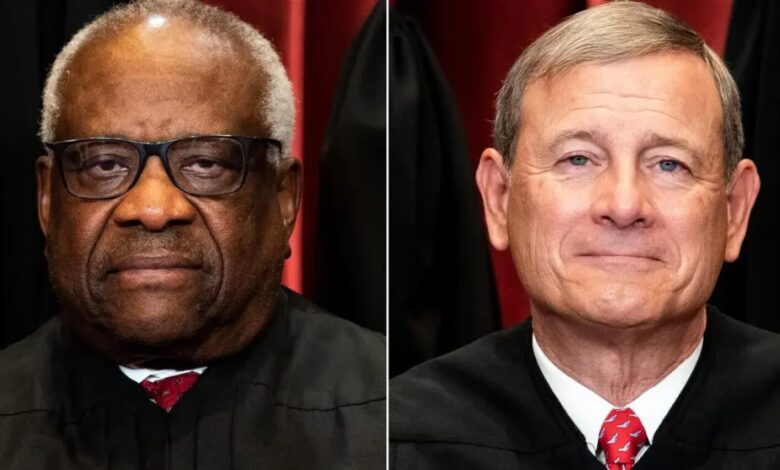SCOTUS Refuses Missouri Bid To Revive Law Negating Federal Gun Limits

The U.S. Supreme Court on Monday declined to take up Missouri’s effort to reinstate a Republican-backed state law that sought to block enforcement of certain federal gun regulations.
By rejecting the appeal, the justices left in place a lower court ruling that struck down the measure as unconstitutional under the Supremacy Clause, which establishes that federal law overrides conflicting state laws.
The 2021 law, known as the Second Amendment Preservation Act, aimed to prohibit state and local officials from enforcing federal firearms restrictions. Lower courts ruled that the law violated the Constitution by interfering with the federal government’s authority to regulate firearms.
The measure, known as the Second Amendment Preservation Act, was passed by Missouri’s Republican-controlled legislature and signed into law in 2021 by then-Governor Mike Parson. The law asserts that several federal firearms restrictions violate the Second Amendment’s guarantee of the right “to keep and bear arms.”
The U.S. Justice Department, under President Joe Biden, sued the state, arguing that the law violated the Constitution’s Supremacy Clause, which establishes that federal law takes precedence over state law.
U.S. District Judge Brian Wimes blocked enforcement of the statute in 2023, a ruling that was later upheld by the 8th U.S. Circuit Court of Appeals in 2024. The Supreme Court’s decision leaves those rulings intact.
Missouri filed its appeal with the U.S. Supreme Court on January 23, three days after Donald Trump returned to the presidency, marking the start of an administration broadly supportive of gun rights.
Despite that stance, Trump’s Justice Department urged the justices not to take up the case. The department said it had reassessed Missouri’s statute and no longer sought to fully block its enforcement but maintained that Supreme Court review was unnecessary.
The Missouri law at issue sought to designate certain federal rules on the sale, taxation, and possession of firearms as violations of the Second Amendment. It also imposed fines of up to $50,000 on state and local officials who knowingly enforced federal gun laws deemed unconstitutional by the state legislature, Reuters reported.
The measure, however, did not specify which federal laws or regulations the state considered invalid. Among the category of federal laws it deemed invalid were any “forbidding the possession, ownership, use or transfer of a firearm, firearm accessory or ammunition by law-abiding citizens,” as well as any “act ordering the confiscation of firearms, firearm accessories or ammunition from law-abiding citizens.” It did not define “law-abiding.”
The Biden administration argued that Missouri’s law interfered with the federal government’s ability to enforce national gun regulations, violating the Constitution’s Supremacy Clause. Federal officials said the measure prompted many state and local law enforcement agencies in Missouri to halt cooperation with federal authorities, including assistance in firearms investigations, Reuters noted.
U.S. District Judge Brian Wimes, appointed by former President Barack Obama, sided with the administration, ruling that the statute unlawfully obstructed federal enforcement efforts.
Missouri appealed, contending that the state has the right to restrict its officers from enforcing federal laws for any reason it chooses. The 8th U.S. Circuit Court of Appeals upheld Wimes’s decision.
After Trump took office, the Justice Department reexamined the case and told the Supreme Court that while it continues to regard parts of Missouri’s law as unconstitutional, other provisions “present more difficult questions.”
As such, while the Justice Department advised the Supreme Court not to take up the case, the Trump administration indicated it would allow Missouri to ask Wimes to narrow the scope of his earlier ruling.
The Supreme Court has expanded gun rights in a series of landmark decisions over the past two decades. In 2008, it recognized an individual’s right to possess firearms for self-defense, and in 2022, the court ruled for the first time that the Constitution protects the right to carry a handgun in public.
That 2022 decision also established a stricter test for evaluating gun regulations, holding that any modern restriction must align with those historically recognized in the United States to be consistent with the Second Amendment.





